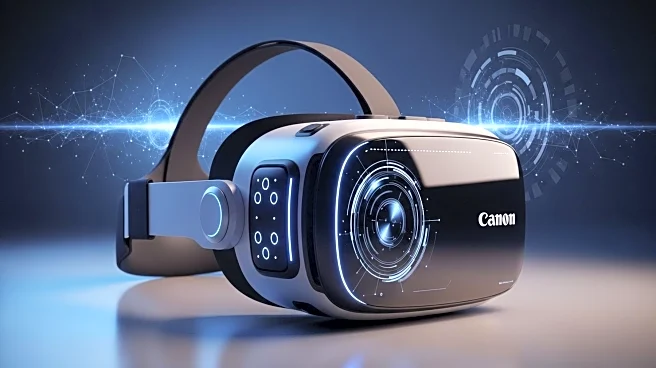What's Happening?
Valve is expanding its Steam Link service to include Pico headsets, as confirmed by a ByteDance beta test registration form. This development allows owners of Pico 4 Ultra, Pico 4, and Pico Neo 3 Link headsets to sign up for the beta test, indicating Valve's intention to support these devices. Previously, the VR version of Steam Link was only available on Meta Quest headsets through the Meta Horizon Store. The app enables users to wirelessly connect to SteamVR on their gaming PCs. The integration with Pico headsets is facilitated by the Android-based operating systems of both Horizon OS and Pico OS, which support OpenXR, the API used by Steam Link. This move follows earlier discoveries by VR enthusiasts who noted the app's compatibility with Pico headsets when sideloaded, despite minor issues.
Why It's Important?
The inclusion of Pico headsets in Valve's Steam Link service represents a significant expansion in the accessibility of VR gaming. By supporting a broader range of devices, Valve is enhancing the reach of its platform, potentially increasing its user base and market share in the VR industry. This development is particularly relevant as it aligns with the growing trend of cross-platform compatibility in technology, which benefits consumers by providing more options and flexibility. For ByteDance, the parent company of Pico, this partnership could enhance the appeal of its headsets, positioning them as competitive alternatives to Meta's offerings. The move also underscores the importance of OpenXR as a unifying standard in the VR industry, promoting interoperability among different devices and platforms.
What's Next?
As Valve continues to expand Steam Link's compatibility, it is likely that more Android-based standalone VR headsets will be supported in the future. This could include devices from other manufacturers such as HTC, which has been referenced in recent datamining efforts. Additionally, there is speculation about the potential for Steam Link to be available on Apple's Vision Pro, especially with upcoming support for PlayStation VR2 Sense controllers. Such developments could further diversify the VR ecosystem, encouraging more innovation and competition among headset manufacturers. Stakeholders in the VR industry, including developers and consumers, will be closely monitoring these advancements to assess their impact on the market.











